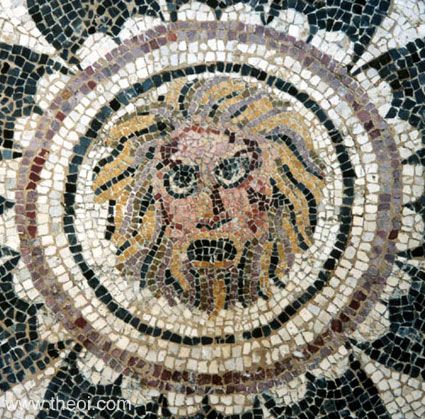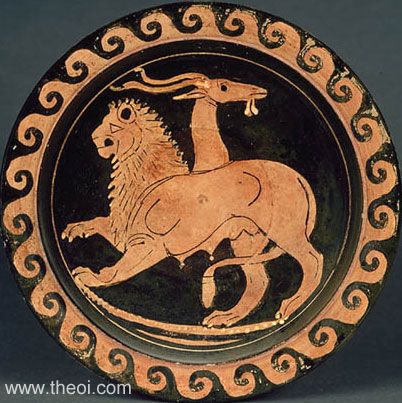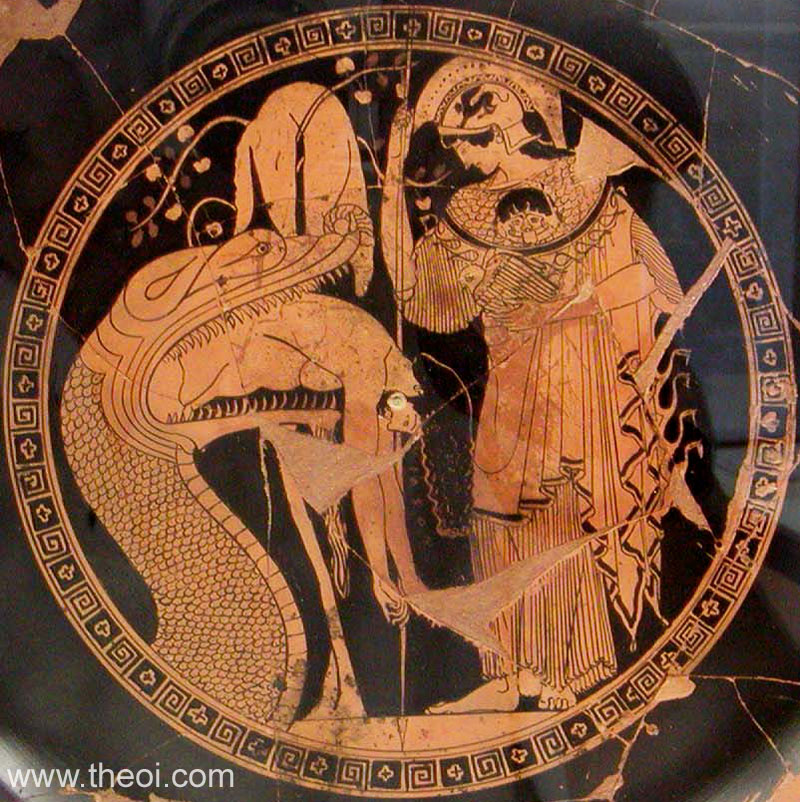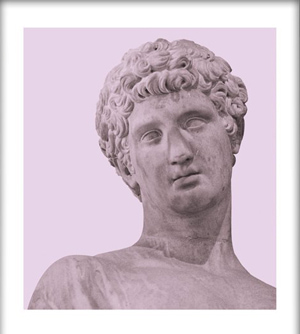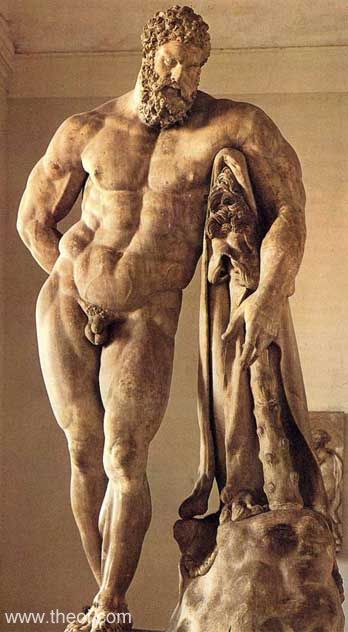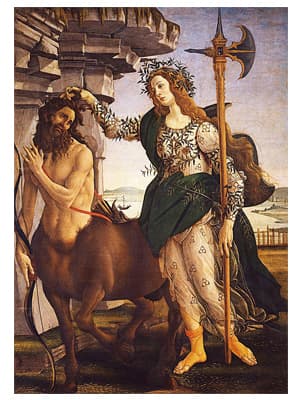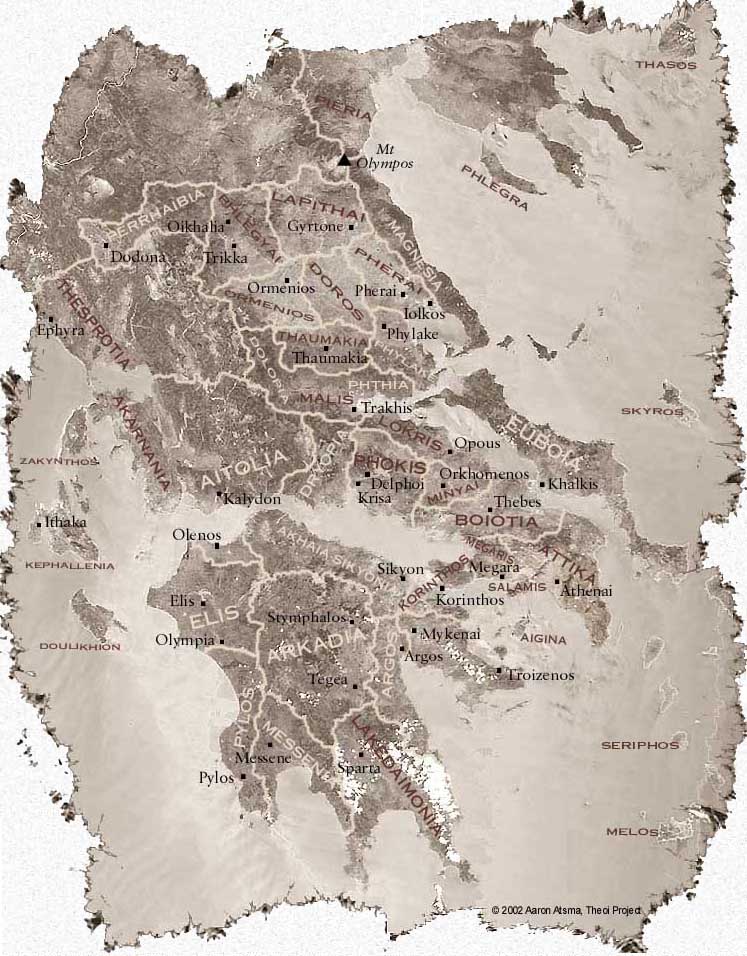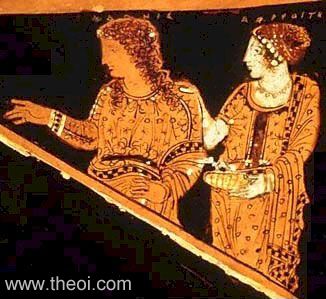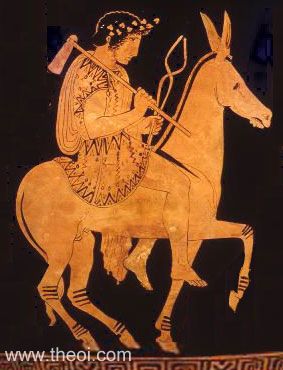Uranus, or the literal translation of Ouranus, is better known as Father Sky. In Greek mythology, the world was depicted as flat with a dome over it. The dome was thought to be made of brass with ridges for stars.
Who is Uranus?
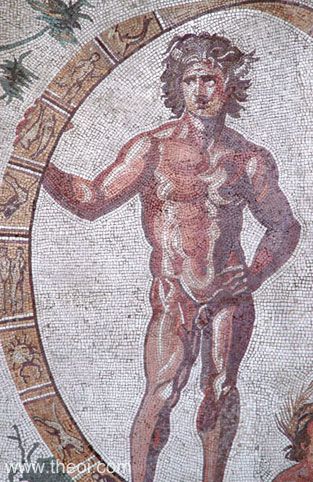 Uranus, at one time, was known as the ruler of the universe. In traditional Greek mythology, he was considered primordial, meaning to exist from the beginning of time. In the later years of Greek mythology, some authors began to explain that Uranus was birthed from a mother and father. Near the end of Greek mythology, Uranus was even thought to have been born from a different father, although all writings indicate he had the same mother.
Uranus, at one time, was known as the ruler of the universe. In traditional Greek mythology, he was considered primordial, meaning to exist from the beginning of time. In the later years of Greek mythology, some authors began to explain that Uranus was birthed from a mother and father. Near the end of Greek mythology, Uranus was even thought to have been born from a different father, although all writings indicate he had the same mother.
In the early years of Greek mythology, Uranus was simply referred to as offspring to Gaia with no father. Gaia, who was considered the personification of earth or Mother Earth, had created Uranus to be equal to her, as well with the universe alongside her. These writings would essentially paint that both Gaia and Uranus together were the primordial couple ruling the whole universe.
Who is the Father of Uranus?
The father of Uranus was at one point referred to as Akmon, but later in mythology was referred to as Aether. Aether in ancient Greek mythology was known as a primordial god of light and the bright blue ether of the Heavens.
This father figure was known as one of three airs: the bright blue air, which was called the upper air, the middle air, and the lower air. The upper air would be considered to fill the space between the dome of the sky down to the middle air that enveloped the earth. This logically could make sense that Aether could be the father to Uranus.
Who were Uranus’s Children?
Uranus and his mother, Gaia, had eighteen children; however, Uranus was not happy to be a father. The children of Uranus were the 12 Titans, along with three Cyclopes and three Hecatoncheires.
Uranus Feels Threatened
The ruler of the sky and universe didn’t like the thought that one of his offspring could potentially take his spot on the throne. Uranus attempted to lock away and hide his children in order to protect himself. This would become his downfall because of the pain that it causes Gaia.
After some time Gaia could no longer bear the pain and created a weapon and a plan to get rid of Uranus altogether. Gaia fashioned a sickle and persuaded one of her sons to hide and ambush Uranus. Kronus, also known as Cronus, was one of the twelve Titans and he hid and when Uranus came to lay with Gaia. As Uranus lay with Gaia, Kronus attacked and castrated the god of the sky.
After his castration, Uranus’s genitals were discarded into the sea. Gaia went on to give birth to many more children after Uranus’s castration.
Uranus is the Ancestor of the Greek Gods
Uranus was regarded as one of the ancestors for almost all of the Greek gods and mythological beings. Uranus prophesied that his children, the Titans, would be punished for their wrongdoings towards him.
This came to fruition when Zeus, the king of the Greek gods, sent five brothers into the pit of Tartarus, which was the dungeon of torment in Greek mythology.
How the Planet Uranus got its Name
The ancient Greeks only knew of five planets that they called wandering stars. In 1781, the first planet was discovered using a telescope. This newly found planet needed a name; therefore, was named Uranus. Uranus is the only planet whose name was derived from its Greek meaning rather than the other planets that names came from Roman history.
